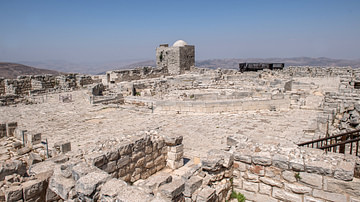Search
Did you mean: Muse?
Search Results

Definition
Sumerian Language
The Sumerian language was spoken in southern Mesopotamia before the 2nd millennium BCE and was the first language to be written in the cuneiform script. It is an isolate language meaning we know of no other languages that relate to it ancestrally...

Definition
Kikimora
Kikimora (pronounced Kih-kee-mora) is a female house spirit from Slavic lore who can be helpful or malevolent depending on the behavior of the homeowner. In differing versions of her stories, there are two kinds of spirit, one generally helpful...

Definition
New Testament
New Testament is the name for the second half of the Christian Bible, compiled from the 2nd century CE, after the separation of Christianity from Judaism. The Christian Bible retained books of the Jewish scriptures, the Old Testament, as...

Definition
Richard Wagner
Richard Wagner (1813-1883) was a German composer of Romantic music most famous for his epic operas like The Ring, Tannhäuser, and Tristan and Isolde. Wagner was concerned throughout his career with the theme of redemption through love and...

Definition
Eris
Eris is the Greek goddess and personification of discord and strife. She is an unpopular figure in Greek mythology due to her problematic behaviour and her ability to stir up trouble wherever she goes. Eris is most famous for her Golden Apple...

Definition
Samaritans
The Samaritans are a religious sect of ethnic Jews living near Mount Gerizim, Nablus, Hebron, and the West Bank in Israel. This community differs from mainstream Judaism by claiming that followers only accept the five books of Moses (Torah...

Definition
Giuseppe Verdi
Giuseppe Verdi (1813-1901) was an Italian composer best known for operas such as Rigoletto, La traviata, and Aida. Verdi is noted for his powerful scores and strong characters where anti-heroes lead the dramatic action through often complex...

Definition
Ancient Cyprus
Cyprus is a large island located in the eastern Mediterranean Sea, east of Greece, south of Asia Minor, west of the Levant, and north of Egypt. The naming of the island is a matter of dispute amongst historians. One theory suggests that...

Definition
Old Testament
Old Testament is the Christian name for the books of the Jewish scriptures that constitute the first half of the Christian Bible. "Old" in this sense was a means to distinguish Judaism from Christianity at the creation of the New Testament...

Definition
Chiron
Chiron (also spelt Cheiron) is a wise centaur (half-man, half-horse) in Greek mythology, who was a friend and tutor to many legendary Greek heroes, including Achilles and Jason. Chiron's parentage differed from the rest of the centaurs, as...